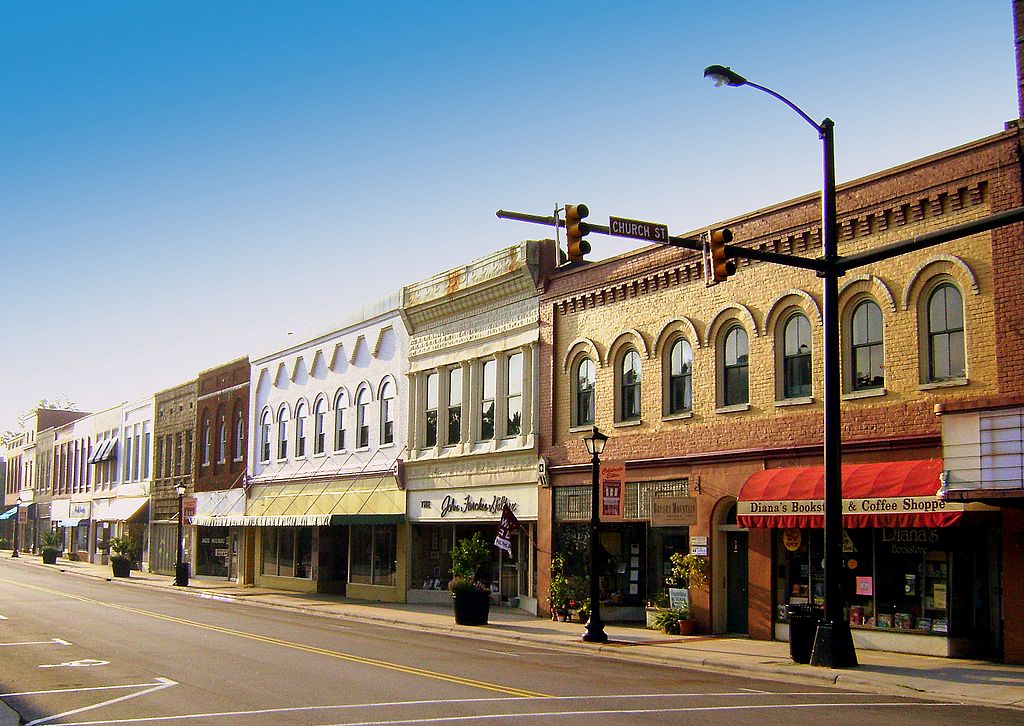Elkin, NC may be small, but what we lack in size, we more than make up for in history and culture. ManiDental Family Practice is proud to be based in Elkin, and we hope you will enjoy an overview of our area’s long history.
Elkin: The Earliest Years
Although Elkin’s history only extends to the mid-1800s, the history of the area goes back as much as 10,000 years, when the Yadkin Valley was home to Native Americans from the Sioux and Cherokee tribes. The earliest years were characterized by gentle cultivation and enjoyment of all the natural wonders the area had to offer, and this remained the standard for life in Elkin until industry came to the area in the mid to late 1800s.
The Sioux and Cherokee Tribes
The Sioux tribe is the earliest known Native American tribe to live in the Yadkin Valley. The Sioux are estimated to have lived in what is now Elkin from as long as 10,000 years ago, at which point the area was cultivated along the north side of the Yadkin River. Much later, Native Americans from the Cherokee Tribe arrived in the area. These tribes remained residents of the Yadkin Valley until the 1700s and beyond when white settlers began to move into the space.
English Colonists
English colonists were led into modern-day Elkin by Richard Gwyn. Richard Gwyn left Jonesville, another settlement, in 1840. It was then that he settled on the north side of Elkin Creek, believing that ready access to water and the nearby forest would prove beneficial to everyone who left Jonesville to settle in Elkin.
Water and Prosperity
At the time, easy access to water was vital, as settlements and small towns that did not have access to water were more likely to fail, taken over by hunger, thirst, and disease. Richard Gwyn opened the door to settlement in the area, and it was through his leadership and example that settlements along Elkin Creek began to thrive.
Moving Into Modernity: 1800s and Beyond
While the area began to experience cultivation 10,000 years ago, it was not until the mid-1800s and beyond that Elkin and the surrounding areas truly began to experience a huge surge in colonization and movement toward modernity. Much of the progression of Elkin has been attributed to Richard Gwyn’s involvement in pushing growth and development.
Richard Gwyn
Richard Gwyn was responsible for the opening of a cotton mill in Elkin. Despite failure being a common companion to other mills in early American settlements, Gwyn’s cotton mill thrived and continued to support the small town until the North Carolina railroad arrived in 1890.
Woolen Mill and Growth
The success of Gwyn’s cotton mill prompted Gwyn and one of his contemporaries, Alexander Chatham, to open a woolen mill. The woolen mill is considered the most significant source of growth following the initial cotton mill and subsequent industry in Elkin. The mill encouraged economic growth, which drove additional settlers to come to the area and led to the North Carolina railroad taking an interest in Elkin and the Yadkin Valley.
Railroad and Expansion
As was common in the South during this time, the expansion of Elkin did not truly explode until the Northwestern North Carolina railroad pinpointed Elkin as a pivotal part of its route. The opportunities the railroad brought led to the ongoing growth of Elkin, contributed to the growth of the established Elkin manufacturing companies, and aided in the ongoing growth of Elkin and the surrounding areas.
Elkin Today
Today, Elkin continues to be a thriving town, fusing dedication to industry and a devotion to artistry that is unmatched in most small cities in the US. Although textiles are no longer the preferred economic staple of Elkin, there is still a lot to do in Elkin. Whether you are looking for an eatery to explore local flavors or you are in need of dental services in the area, Elkin has plenty to offer.









